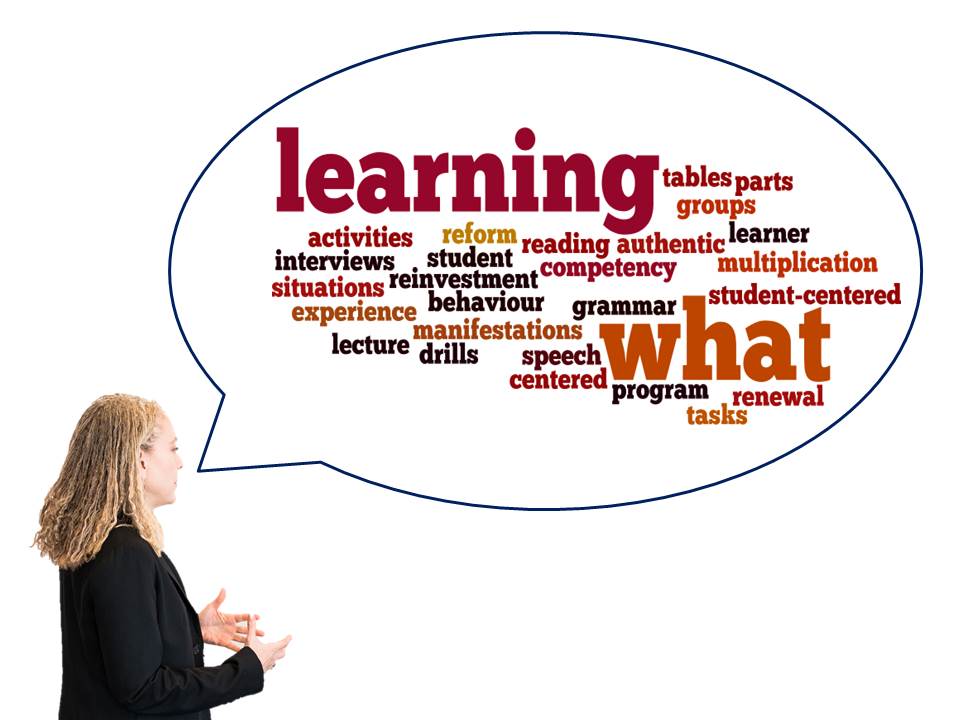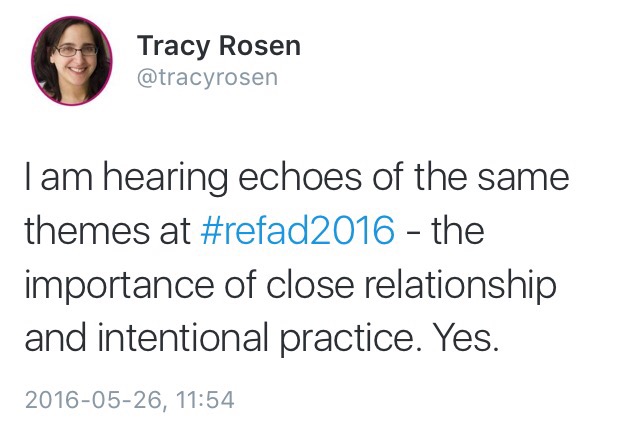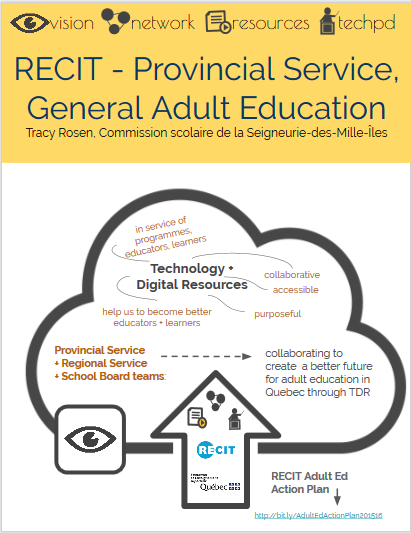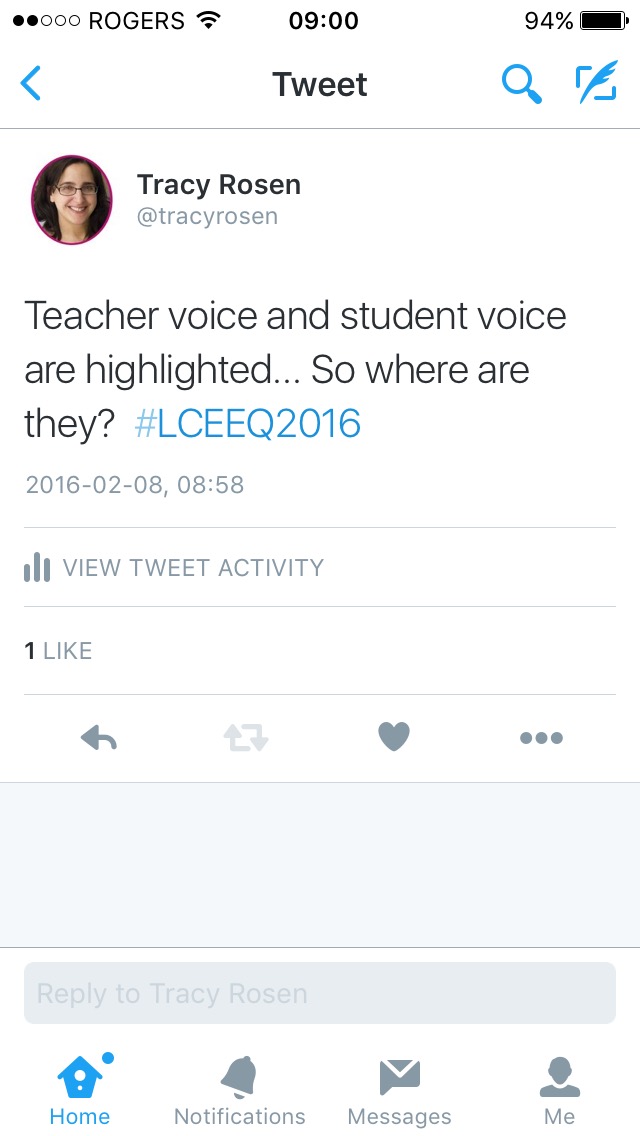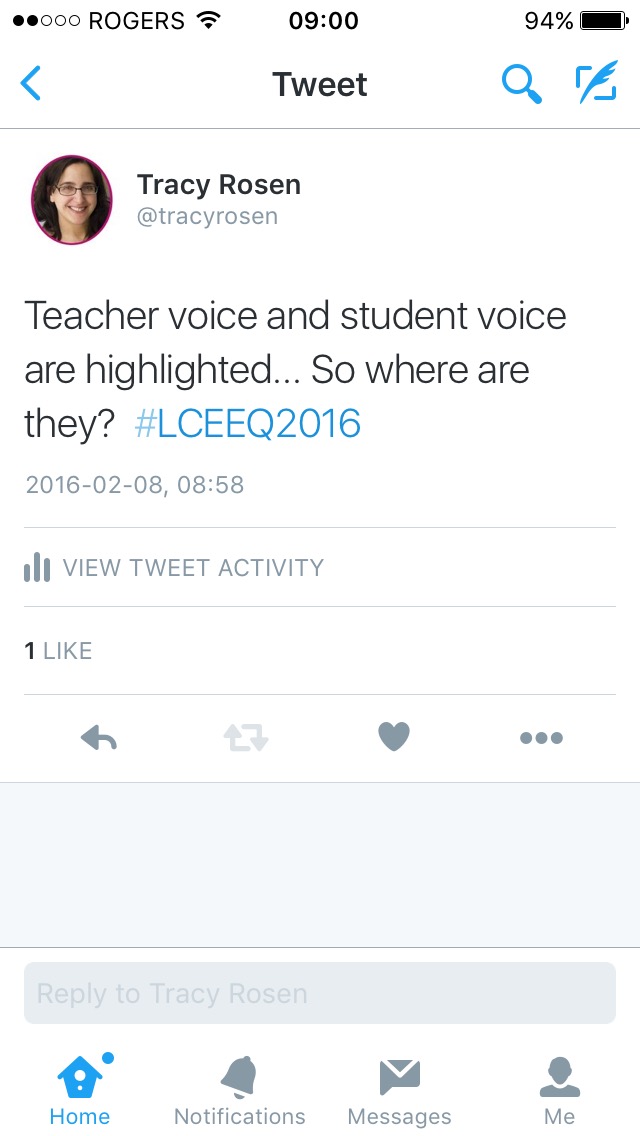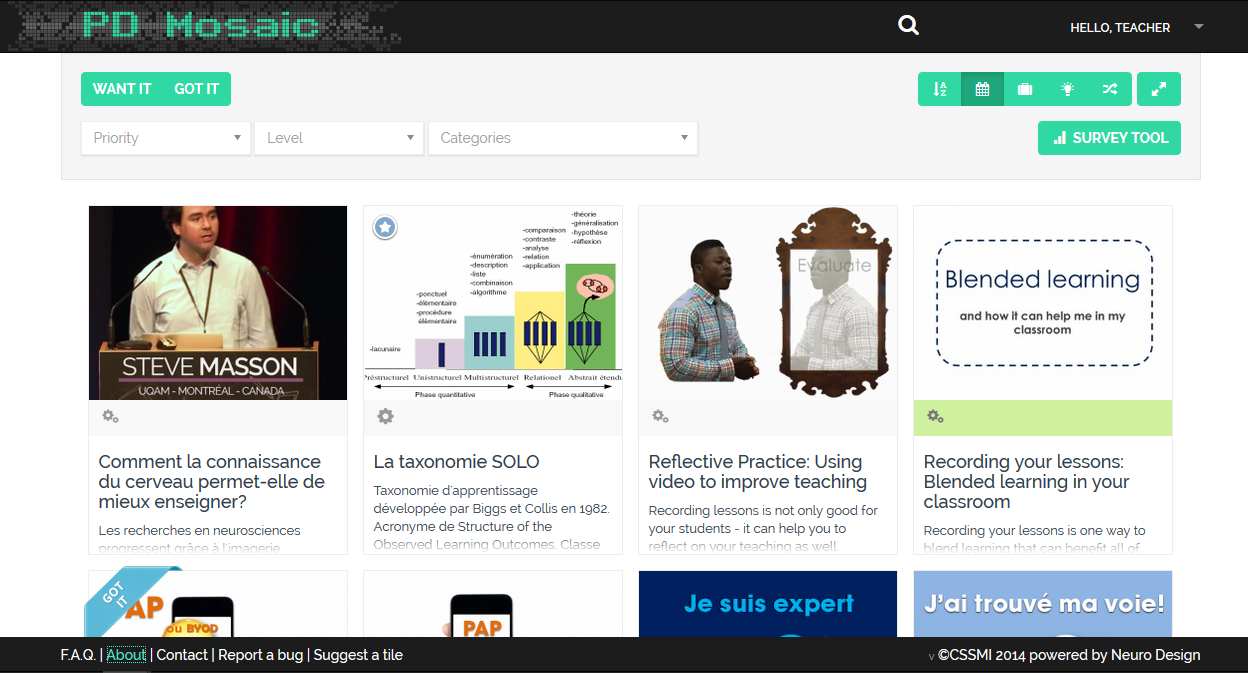 The great thing about AQIFGA is that it holds an annual conference that focuses on Adult Education in Quebec.
The great thing about AQIFGA is that it holds an annual conference that focuses on Adult Education in Quebec.
Every single speaker and workshop highlighted an aspect of adult education …and that is really rare to find! We are usually left grappling with transferring ideas for youth sector to the adult education context. This is not a horrible thing but it is nice to have a place where this doesn’t have to happen.
In total I participated in four workshops – two as presenter and two as participant – and I was super happy to see a growing number of English sector teachers from across Quebec at AQIFGA this year!
Here is a summary of those four workshops:
Can One Teaching Strategy Respond to Many Needs? Yes!
Presenters – Daniel Afriyie, EMSB Math and Science teacher and Tracy Rosen, CSSMI Provincial RECIT for Adult Ed
but really, Daniel was the star of the show here. I jumped in once in a while to go into detail about why I love and respect different parts of his process. Earlier in the year I put together a couple of videos about how he uses his interactive white board to record his lessons and share them with his students. This workshop was an opportunity to go deeper into the idea – he talked about the why as well as the how…and he modeled the process by recording the workshop using the interactive white board in the room where we presented. He also talked about where he wants to go with the concept from here.
I loved that, though he presented about how he teaches math, the participants actively talked about how they could use this technique for teaching other subjects. It is such a meaningful way to use technology to improve learning and the teacher/student relationship. Thanks, Daniel – great job!
Here is the presentation from that workshop, if you are interested.
http://bit.ly/1strategyAQIFGA
But I’m Not a Math Person, so I’ll Never Get It.
Presenters – Ines Renner and Jordan Venne, LBPSB Math and Science teachers
In this workshop Ines and Jordan challenged assumptions about Math and demonstrated how our own attitudes towards the subject can affect our students’ attitudes. They focused on developing a positive, growth oriented mindset in Math and how that is what ultimately affects student self-confidence, progress, and learning. I was so impressed by their presentation that I want to work with them to create resources to share with all of you…stay tuned!
Promoting Oral Interaction in the Adult Literacy Classroom
Presenters – Yusimy Dominguez Travieso, Maria Cristina Toro, and Farideh Raygan, RSB Language teachers
The workshop focused on different strategies to teach second (and third…and fourth…) languages to diverse groups of learners. The strategies were a mix of technology, role-playing, and game based strategies and the consensus was that whatever we do with our learners it needs to be relevant to their realities. I really appreciated the conversation around culturally relevant teaching – how it is not enough to just teach a language but we need to be aware of who our learners are as well as what is happening in the community around us and integrate that awareness into our classrooms in order to make learning stick.
“Culturally relevant pedagogy has theoretical roots in the notion that learning is a socially mediated process and related to students’ cultural experiences. Culture is an important survival strategy that is passed down from one generation to another through the processes of enculturalization and socialization, a type of roadmap that guides and shapes behavior. If new information is not relevant to those frameworks of culture and cognition, people will never remember it. If the information is relevant, they will never forget it. “ http://www.tolerance.org/magazine/number-36-fall-2009/feature/relevant-beyond-basics
The ideas they presented fit in so nicely with the CCBE as well as the DBE program philosophies!
Have You Thought About Stations in Adult Education?
Presenters – Avi Spector, RSB Regional RECIT for Adult Education and Tracy Rosen, CSSMI Provincial RECIT for Adult Ed
We offered participants a chance to learn about using stations in their classrooms by experiencing stations. We blah-blah-blahed for about 15 minutes before jumping right in to the experience. We offered three main stations – a teacher station, a video station, and a reading station – plus an extension station for anyone who finished a station activity early (ha! With 15 minute rotations between stations there was not much time to extend the learning during the workshop 🙂 ). The two of us sat at the teacher station in order to model how it might work in a classroom where there isn’t the luxury of an extra body to make sure all is going smoothly at the other stations. In order to ensure that things DID go smoothly, we left printed instructions at each station.

I had a GREAT time at my own workshop! The beauty of cycling students through stations is the quality time that each group gets to spend with the teacher. Both Avi and I reflected that we had a richer experience as presenters because we had the opportunity to sit and connect with each of our participants in a small group setting as opposed to talking at a big group, which is what so often happens at conferences and in our classrooms.
Another reason I love using stations is that it helps to facilitate the concept of flipped learning i.e. using video to present material. The fact that we did this at one of our stations allowed us to flip within the classroom – freeing up teacher time to address questions, gauge understanding, clarify misconceptions, etc…
Here are the resources from our workshop:
Workshop Slide Show – http://bit.ly/stationsfga – Some of this was presented in the initial intro and a lot was addressed at the Teacher Station as well.
YouTube Playlist: Emilie on Stations – http://bit.ly/videostation – These were the videos we asked participants to watch at the Video Station. They were accompanied with a reflective journal activity (described in the Workshop Slide Show above).
Reading Station – participants could choose to read one or both of the following articles and then interview a partner about them (described in the Workshop Slide Show above).
Create Small Learning Communities with the Station Rotation Model by Catlin Tucker
Les Centres d’Apprentissage by Patricia Munante
So that was my AQIFGA 2016. Did you attend AQIFGA this year? What were your highlights?
***The image at the top of the blog post is Throwing John by Chuck Burgess on Flickr CC BY NC ND
